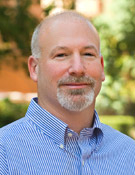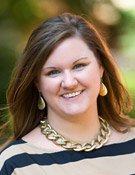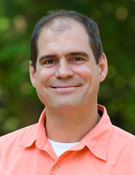Our stories
Life experiences lead to social work pledges
Peel back the layers of a social worker’s life and more often than not you will discover a purpose that’s fueled by life experiences. Moments span from the classroom to the field and include everything from personal tribulations to witnessing social injustice.
Robin Yoder’s (M.S.W. ’89/SW) epiphany followed acts of compassion shown by total strangers. At 18 years old, Yoder was diagnosed with bone cancer. She and her family traveled from their home in Virginia to the University of Florida, where she underwent treatment for her condition. They had no friends, no family and no one to lean on in those difficult times. They made a Howard Johnson hotel room their temporary home.
“There were no oncology social workers at that time to help us cope,” Yoder said. “There were no cancer support groups and no gathering places where we could meet and network with other patients.”
Instead, help arrived from an unlikely source.
“The hotel workers and managers embraced me and my family and supported us through a difficult time,” she said.
Yoder made a personal vow that if she survived her disease she would find a way to make a difference in the field of oncology. Eleven years later, while serving as a social worker at Johnston-Willis Hospital, in Richmond, Va., she started its first cancer support group. Later, she formed a breast cancer support group, a caregivers support group and then ultimately fulfilled her life’s goal by cofounding The Hawthorne, a comprehensive cancer resource center.
“These groups became an example for the value of a social worker in the oncology setting,” she said.
One spark can light the fire
For Yoder, the need for social work in the area of oncology led to a lifelong commitment to social work. For others, the initial spark might come from work or educational experiences.

“After spending the better part of 12 summers as a camp counselor and administrator, I knew I had a connection with youth and I wanted to pursue a career that paralleled this experience,” said Art Mayer (M.S.W. ’88/SW), who supervises sex offender and substance abuse treatment programs for the Virginia Department of Juvenile Justice.
Mayer began helping juvenile sex offenders in 1992 and now supervises two of Virginia’s critical programs for at-risk youth. He focuses on helping individuals, but like many social workers, he understands how micro- and macro-level efforts tie together to form the big picture. This knowledge is what leads many social workers to pursue careers that influence the macro-level issues that contribute to the conditions treated on an individual basis.

“While in graduate school, I was employed by a company that worked on behalf of the uninsured and underinsured,” said Molly Huffstetler (M.S.W. ’07/SW), deputy director for the Virginia Health Reform Initiative. “It was during that time that I realized I had two options. I could either continue to operate in a broken paradigm, or I could be involved in policy change and development in order to improve the quality of health care delivery, access and affordability overall.”
Huffstetler’s goals include helping to create a better coordinated system of care for all levels of health care, but she understands that in order to effect this level of change micro- and macro-level efforts will need to coexist. In social work, the sum of the whole makes the biggest difference.
The sky is the limit

“In the future, I hope to see social work end homelessness, protect children and adults from abuse, eradicate poverty, create real opportunity for all people, eliminate prejudices in so many forms and basically make the world a much more just and loving place,” said Jeanine Harper (B.S.W. ’86/SW; M.S.W. ’93/SW), executive director for Greater Richmond SCAN (Stop Child Abuse Now).
Like many, Harper’s desire to help individuals is what led her to social work; but she credits past faculty members in the School of Social Work for showing her how macro-level efforts drive change.
“I really thought I would be a clinical social worker, but being around Sheila Crowley taught me that I needed to also develop macro practice skills,” Harper said. “I was also very fortunate to be surrounded by people like Bob Schneider, who constantly preached that we needed to be both micro and macro. He was right.”

The same is true for Harper’s coworker, Ian Danielsen (M.S.W. ’92/SW), whose studies in criminology and the sociology of
family led him to become a mental health professional for at-risk youth. Danielsen serves as coordinator for SCAN’s Children’s Advocacy Center.
“Very early on, I was interested in being a direct services provider and also a system reformer,” he said. “And the profession of social work seemed to hold those same core values.”
Ultimately, if social workers had their way, they would eliminate the need for their own services by eradicating the issues that define their personal efforts.
“The better we do our jobs, the more we render ourselves obsolete,” Danielsen said.
The mission continues
Varied experiences led each of these alumni to social work and life experiences are what frequently renew their dedication to the field. In 2011, Robin Yoder’s commitment to social work came full circle when she was diagnosed with a rare form of cancer, leading to the amputation of her right leg above the knee.
In spite of these challenges, she is a triathlete who aims to compete in her first triathlon in May 2012. This time around, partly due to her own efforts, support groups exist to help her through the experience of being a cancer patient. With that job well-done, she now focuses on a new area of need.
“My eyes have once again been opened to a whole other group of people,” she said. “I would like to start up a support network for people with disabilities.”
And so her journey in social work begins again.
Categories Alumni